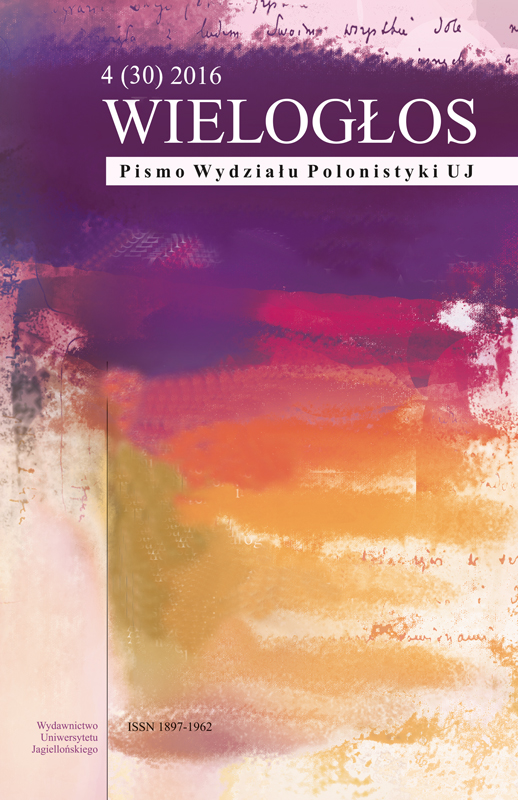„Szlachetny złoczyńca” i „spółczesne wypadki”, czyli romantyzm i polityka w teatrze muzycznym XX wieku (wokół „Śmierci Klinghoffera” Johna Adamsa)
The “noble knave” and “present occurrences,” i.e., romanticism and politics in the musical theatre of the 20th century (around The Death of Klinghoff er by John Adams)
Author(s): Iwona PuchalskaSubject(s): Studies of Literature
Published by: Wydawnictwo Uniwersytetu Jagiellońskiego
Keywords: Death of Klinghoffer; opera; romanticism; art and politics
Summary/Abstract: The article analyzes the specifi c character of The Death of Klinghoff er as a collective work with strong political connotations, as well as the controversies around its performances, from the perspective of the evolution of opera theatre poetics. The main reference point is the tradition of the Romantic theatre, with special emphasis on two novelties introduced within that tradition: using contemporary history as material for dramatic elaboration, and giving the voice to negative characters and presenting their arguments as equally important within the dramatic structure. Romanticism, in the name of a right to an individualized vision of the world, held the truth of art beyond the truth of facts, just like it went beyond the traditional axiology and morality in search for a true nobleness of spirit (by e.g. creating the type of a “noble knave”). This, in turn, led to seeing art as a realm of myth, which even if genetically connected to real events, had lost this relation long ago and opened a possibility to interpret them freely and out of context. The case of The Death of Klinghoff er shows that even if such assumptions have already been accepted in theory of drama, the artistic practice still regards them as problematic..
Journal: Wielogłos
- Issue Year: 2016
- Issue No: 30
- Page Range: 23-46
- Page Count: 24
- Language: Polish

